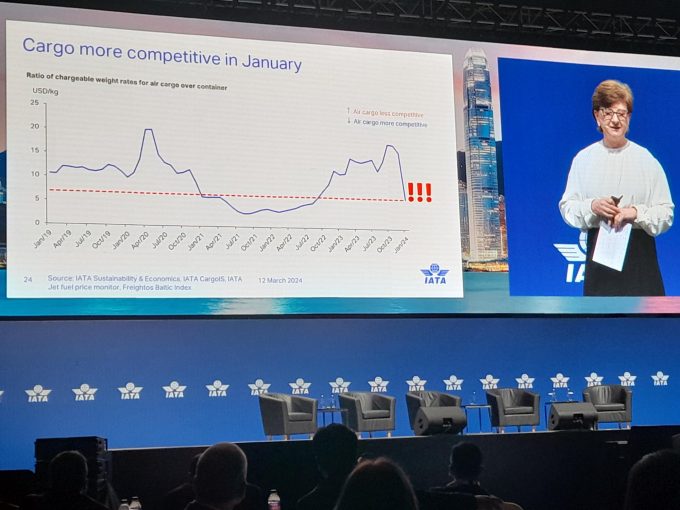'Adoption of SAF no longer an engineering challenge, it's an economic one'
The oil and gas industry is failing air cargo, putting in just a fraction of ...

Air freight rates were more competitive in January, relative to other modes, than since the pandemic, according to IATA’s chief economist, Marie Owens Thomsen.
And air cargo is “capturing market share in the trade space”, she added, particularly on Far East to North America lanes.
“Growth in ...
Keep our news independent, by supporting The Loadstar
Red Sea crisis has driven most new capacity into extended Asia-Europe trades
Explosions and 'out-of-control' fire reported on Wan Hai box ship
Carrier price hikes hold, driving spot rates higher as space gets scarcer
Crew forced to abandon ship in latest fire on vessel carrying EVs
The Loadstar Podcast | Transport Logistic and Air Cargo Europe 2025
Four crew members still missing as Wan Hai 503 continues to burn
Asia-West Africa ULCV deployment opens new markets for carriers

Comment on this article